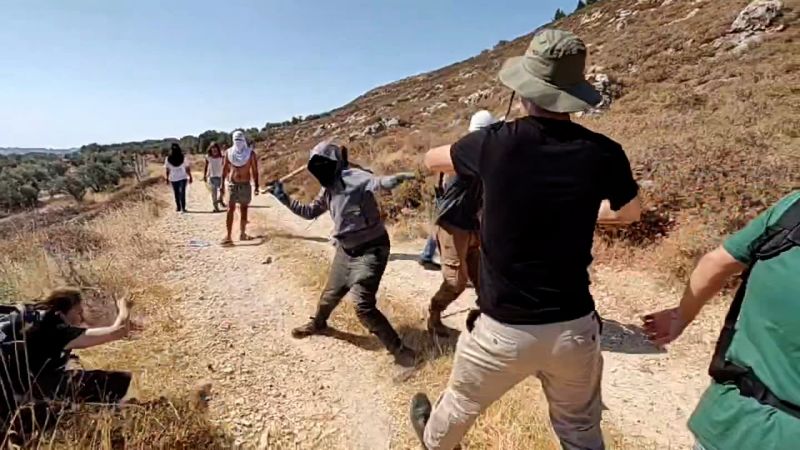The West Bank, which has been a zone of contention for many years, has recently witnessed an escalation in hostility between Israeli settlers, Palestinian farmers, and foreign activists. This piece aims to dissect the reasons, implications, and possible solutions to this growing issue which has raised alarm both in the regional and international spheres.
The West Bank, an area rich in history, culture, and religion, is a disputed region predominantly populated by Palestinians and controlled by Israel. In this territory, Israeli settlements have been constructed, often leading to conflict with the indigenous Palestinian population. Recently, these conflicts have intensified as Israeli settlers have attacked Palestinian farmers and foreign activists alike.
Israeli settlers are Jewish individuals or families who have moved into the West Bank, often propelled by ideological, religious, or economic motivations. Some view their living there as an act of religious redemption and national restoration. However, others, particularly Palestinians and the international community at large, view these settlements as illegal usurpations of rightful Palestinian land.
Palestinian farmers, while attempting to maintain a steadfast living from the earth, have increasingly become targets of physical attack and harassment by Israeli settlers. Territorial conflicts escalate particularly around harvest periods where settlers have been reported to damage crops, destroy trees and equipment, or physically assault the farmers themselves. This deeply affective act not only threatens the financial stability of the farmers but also endangers their lives and the lives of their families.
Foreign activists, who have come to support the Palestinian cause and protest against Israeli settlements, also face attacks from settlers. These activists, from various nations, often align themselves with international organizations that are committed to peaceful protest and advocacy. Their presence is seen by settlers as an intrusion, leading to bouts of violence and hostility. These persistent attacks have raised concerns about the freedom of expression and the state of human rights in the region.
Tensions between Israeli settlers, Palestinian farmers, and foreign activists have been exacerbated due to the perceived lack of a proper law enforcement response. Despite repeated incidents of violence, there seems to be little to no repercussions for the attackers. This culture of impunity has contributed to further deteriorating relations in the area.
Moreover, the increasing occurrences of these conflict points towards the deep-rooted larger political issue of the Israeli-Palestinian conflict. The violent episodes are mere eruptions of an underlying tension that has gone unresolved for decades; a symptom of a chronic political polarisation that continues to challenge relations in the region.
In the face of escalating hostility, a discussion of potential solutions is of utmost importance to restore peace and harmony. First, efforts could be directed towards implementing measures that ensure the safety of Palestinian farmers and foreign activists in the area, such as increased security during harvest periods. Second, there could be a need for stricter law enforcement to hold accountable those responsible for the attacks. Third, the advocacy for peaceful dialogue and negotiations towards a fair resolution of the Israeli-Palestinian conflict could be a long-term solution to prevent further tension.
In conclusion, the surge in attacks on Palestinian farmers and foreign activists in the West Bank by Israeli settlers presents a troubling situation that requires urgent attention. Addressing the deep-seated political issues, holding the aggressors accountable, and advocating for peaceful cohabitation methods are potential solutions to alleviate the escalating hostility. The path to peace lies in the strength of dialogue and understanding.




